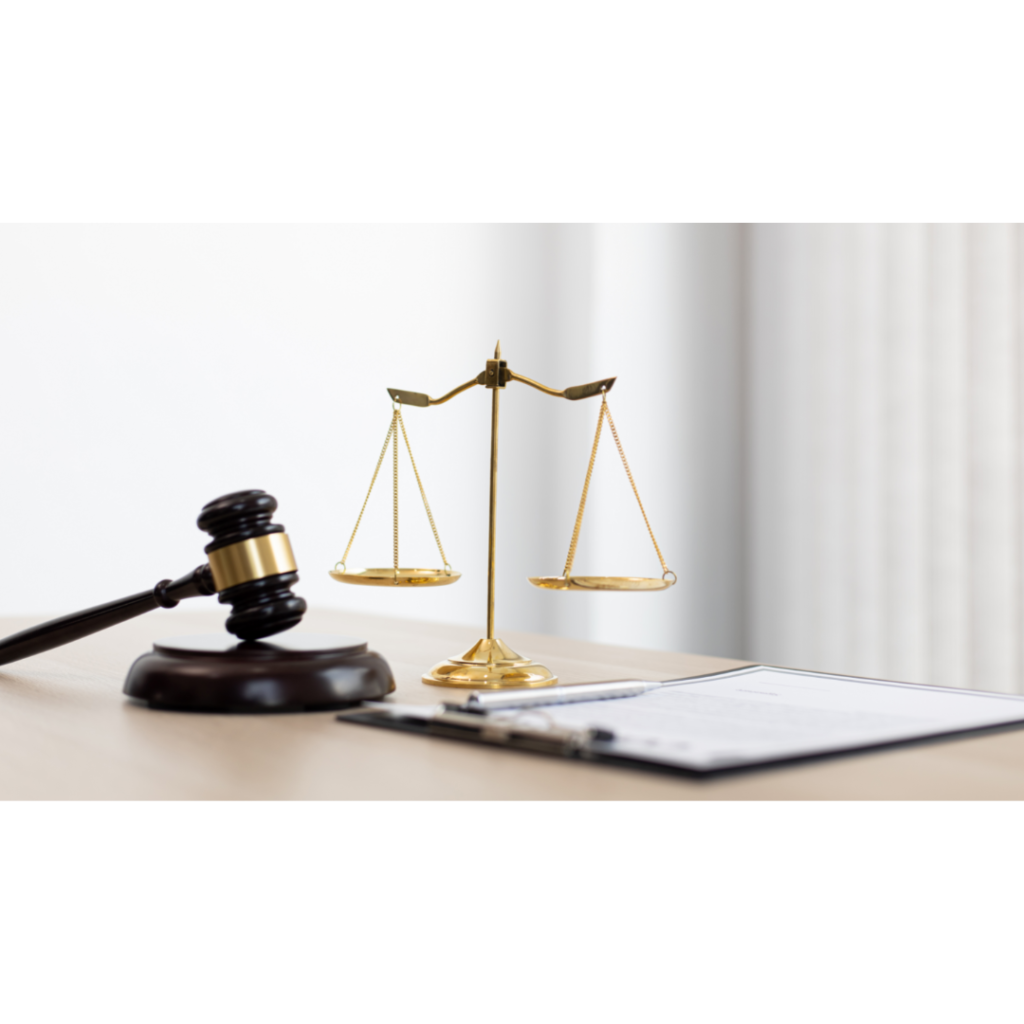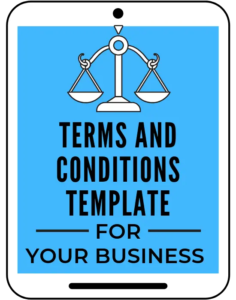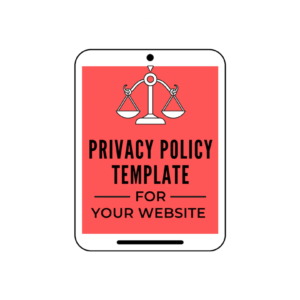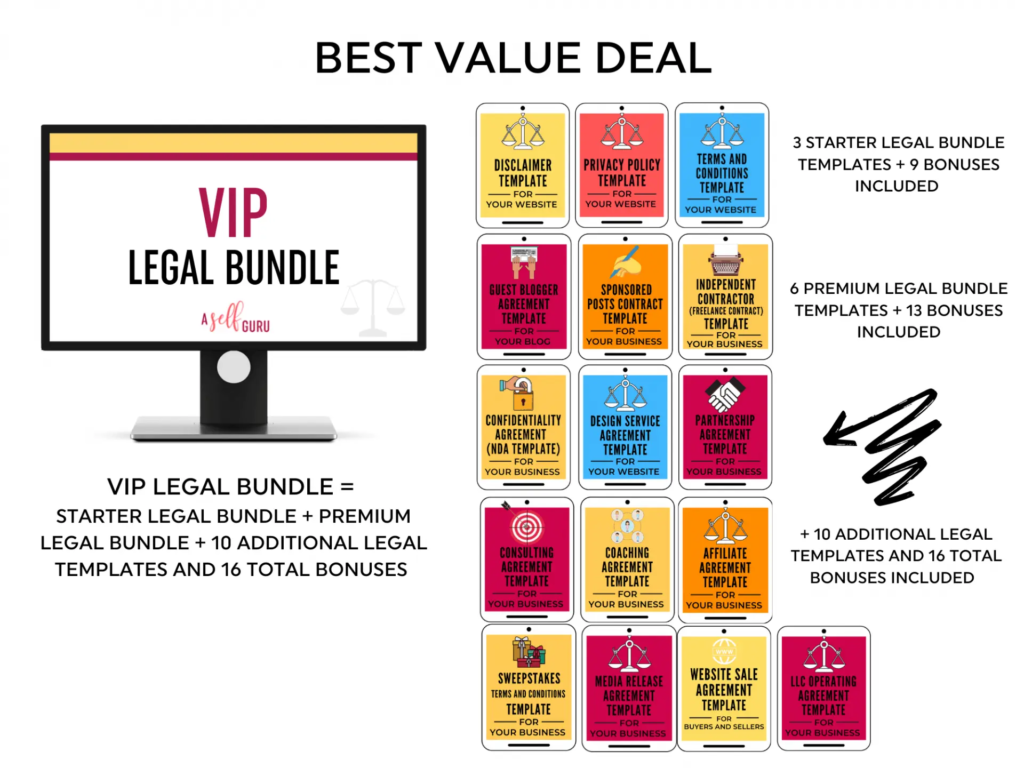
How to Get Paid to Walk Dogs and Do Something You Love
July 12, 2022
How to Make Money Typing: 10 Best Sites to Earn Money Typing
September 12, 2022
How to Get Paid to Walk Dogs and Do Something You Love
July 12, 2022
How to Make Money Typing: 10 Best Sites to Earn Money Typing
September 12, 2022Did you know that you need certain legal pages on your blog, or you’re breaking the law? Many new bloggers don’t understand the importance of blogging legally, but I get it.
There’s so much to learn and do that it’s scary to focus on the legal side of blogging. But I have a simple, affordable solution on how to get the legal pages you need to protect your blog and online business (spoiler alert, it’s simple).
Consider this post a legal guide for bloggers on the three most important legal pages you need for your blog, as well as other problems you may run into.
*Note, I am not an attorney, so this post does not constitute legal advice; it just explains how to blog legally. If you have any legal concerns, you should consult an attorney.
Why You Should Blog Legally
No matter what niche you’re in or if you offer coaching, consulting, freelancing, or something else, any business with a website can get sued. Investing in the necessary legal documents for your blog can help you eliminate potential expensive legal issues down the road.
Without legal protection, you risk being fined, sued, or even shut down, and that would be beyond stressful. You may get sued by your clients or customers, which could result in lengthy court battles, and no one wants that.
I purchased my legal pages before I even launched my blog because I wanted to ensure that I was blogging legally. There are many legal pitfalls for bloggers. Once I started hearing about bloggers that got sued or fined, I knew I needed to focus on my blog’s legal pages.
From trademarks to copyright laws to ensuring your website is accessible to everyone, you can get into a lot of legal problems blogging.
The Ultimate Legal Guide for Bloggers
To start, there are three legal pages all entrepreneurs need on their blogs:
I’ll talk about this a little throughout the article. My friend Amira is a business lawyer and seven-figure blogger who creates inexpensive legal templates for bloggers over at her blog, A Self Guru.
She is very passionate about helping other entrepreneurs legally protect their online businesses. You see, her father owned a business and was sued for $90,000 because he didn’t use a legal contract with someone who worked for him.
The devastating effect of the lawsuit on her family was one of the main reasons she decided to become a business lawyer. And I purchased her templates before I even started my blog.
Disclaimer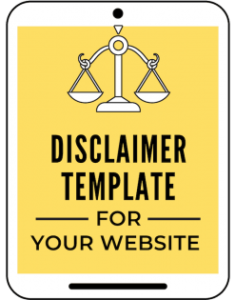
You’ve likely seen a legal disclaimer at some point, like health, medical, or legal ones like the one I mentioned above about not being a lawyer.
A Disclaimer is the best way to legally protect the content you publish on your website like blog posts or other pages on your site.
Every blogger needs a Disclaimer page that needs to be customized to their specific niche so that it applies to their audience.
If you write about something health-related like exercising or eating healthy, or you provide medical advice, then you want to make sure you have health or medical Disclaimers. You would want to tell readers to consult with a physician for their specific needs rather than only relying on the information on your website alone.
Every single niche needs a Disclaimer to release you of any liability for the advice you provide and even the accuracy of the information you publish. You could also be held liable for outdated information too. The post you published six months ago may not be completely correct today.
And you may not be aware of the changes (which is why we need to update blog posts from time to time). A well-written Disclaimer protects you from all the things mentioned above.
Amira has a Disclaimer template as one of the legal templates in her legal bundle. You can purchase the disclaimer alone or in her starter legal bundle that includes the other three pages and more.
You’ll also get her 3 bonuses:
- Earnings Disclaimer
- Testimonial and Product Reviews Disclaimer
- Sponsored Posts Disclaimer
Terms and Conditions
Terms and conditions are your website rules – essentially what people can and can’t do on your website or blog. This legal page protects your intellectual property.
Terms and conditions are also known as terms of Service or Terms of Use. These expressions all mean the same thing.
Your Terms and Conditions also incorporate your Disclaimer and Privacy Policy. The legal page protects you if someone steals your content; otherwise, you have no legal recourse to go after someone legally if they steal your work.
Unfortunately, it’s not uncommon for someone to steal a blog post from a blogger (Pinterest pins get stolen all the time too).
Most bloggers don’t realize they need Terms and Conditions on their blog until after someone sues them, and then it is too late.
If you’re selling products or services and don’t have Terms and Conditions on your blog that includes a refund and exchange policy, you’ll be forced to give customer refunds if they ask.
This page is also important for other reasons like:
- To discontinue someone’s use of your blog
- To explain your intellectual property rights to avoid copyright infringement
- To explain your exchange and refund policies
- To explain how you will resolve legal disputes and where
- To outline how people can use your website
The best way to protect your blog and get an affordable Terms and Conditions page for your blog is Amira’s legal template. You can purchase it separately or check out her starter or Premium Legal Bundle.
The Terms and Conditions legal template comes with:
- A lawful use of your website clause
- Third-party links Disclaimer
- Mandatory Arbitration Clause
Privacy Policy
I think the Privacy Policy is one of the most important pages on your blog, especially with the rise of the General Data Protection Regulation and the California Consumer Privacy Act.
The Privacy Policy tells your website visitors exactly what data you collect and how you are going to use it. People’s personal information identifies them, so they have a right to know what you are collecting and how you are using it.
There are several key laws that the Privacy Policy covers, so we’ll discuss them now.
California Consumer Privacy Act (CCPA)
CCPA provides privacy rights to California residents. It gives them the right to request detailed information about the personal data you collect and allows them to ask you to delete it.
All CCPA violations are enforced by the State of California through the Attorney General. They can charge you civil penalties of $2,500 per violation or up to $7,500 for each intentional violation.
And even worse, California residents can sue you themselves. Non-compliance penalties for CCPA are huge, which is one of the many reasons you need a Privacy Policy on your website.
General Data Protection Regulation (GDPR) Compliance
GDPR sent many bloggers into a tailspin when it came out in 2016, but it didn’t start becoming a serious issue for small businesses until 2018. This law is one of the strictest privacy laws in the world.
The European Union (EU) adopted it. And it’s a law that applies to everyone no matter where you live if people from Europe are visiting your website and signing up to your email list.
Penalties for violating this privacy law are what scared many small businesses. Fines can be up to 20 million euros or four percent of your annual income from the previous year.
A proper Privacy Policy legal page on your blog helps you comply with GDPR.
Your Privacy Policy needs to:
- Inform visitors how you collect the names and email addresses with email marketing services like Mailerlite, Convertkit, Active Campaign, etc. collect data.
- Meet GDPR compliance – It must tell visitors from the EU what personal data you collect from them and how you use it to meet the law’s requirements.
- Inform your visitors about third parties you work with – As an entrepreneur, you likely promote third-party products and services like ads and affiliate links. You must explain this to visitors as well.
- Include a cookie policy – Since all websites use cookies to collect information like where your visitors are located, the date and time they visited your site, and their IP address, you must inform your visitors of this.
- Comply with the Canadian Privacy Law Personal Information Protection Electronics Documents Act (PIPEDA) – If you reside in Canada, your Privacy Policy needs to cover this law too.
- Comply with the Children’s Online Privacy Protection Act (COPPA) – To comply, you must make sure that you aren’t collecting personal information on kids under 13 years old.
This page is one of the three legal pages that come in Amira’s starter legal bundle, and you get the following bonuses:
- GDPR Visitor Rights Policy
- GDPR Compliance/Email Marketing Policy
- Cookie Policy
Other Legal Issues Bloggers Face
Your legal issues don’t end here as a blogger and online entrepreneur. There are other legal problems you must avoid.
Blogging Disclosures for Sponsorships and Affiliate Links
Many people confuse disclaimers with disclosures, but they are different. A disclosure informs your readers about any product or service you promote. Think of the affiliate disclosures you see on peoples’ blogs, telling you that they may receive a commission if you use one of their affiliate links.
“This post may contain affiliate links. If you use my links to buy, I may receive a small commission (at no extra cost to you). As an Amazon Associate, I earn from qualifying purchases at no extra charge to you. For more information, please see our privacy policy and disclaimer.|”
While you must disclose affiliate relationships and sponsored posts, these can all be part of your disclaimer page. If you don’t disclose your paid sponsorships and affiliate relationships, you can face fines of up to $11,000 and/or be sued by the Federal Trade Commission (FTC), which rules over these disclosure laws.
Every blog needs an affiliate disclosure on each page where you promote third-party products, and it needs to be placed above your affiliate links.
Copyright Issues
As soon as you create content, your work is copyright protected which is great because that means you don’t have to do anything formally to protect it. However, that won’t stop people from stealing your content. The copyright law applies to anything written, like articles and blog posts.
Place a copyright statement on every page of your website with the © symbol and/or copyright with the name of your blog and years of publication. It would look something like this:
Copyright © 2018 – 2022 | “Blog Name”
It’s also a good idea to add a longer statement somewhere else on your website that explains what you are ok with people doing and what they shouldn’t do.
At the same time, make sure you don’t use copyrighted content or images, or you are guilty of copyright infringement. When in doubt, link to the source or give the creator credit, so you aren’t using someone else’s work without permission.
Defamation Lawsuits to address Blogging Legally
Your blog or website is not the place to write nasty things about other people. You must be careful what you write about others; otherwise, you could get sued for defamation.
Defamation is when you publish something untrue about someone that harms their reputation, and it’s a serious issue. The two types of defamation are slander and libel.
Slander is when you defame someone orally, like on a podcast or in a video. Libel is the written form of defamation where you defame someone in blog posts, comments, etc.
An example would be writing something untrue about a competitor that could affect their business, reputation, or solvency.
Here is an example of a blogger being sued for defamation and losing. It involves a celebrity, but normal everyday people can get sued too. Here is another example of a defamation suit against a blogger.
Americans with Disability Act (ADA) Compliance
To blog legally, you also need to make your website accessible per the American Disabilities Act (ADA). If your website doesn’t comply with Web Content Accessibility Guidelines (WCAG), you can be sued.
Unfortunately, some attorneys have people working for them to find small businesses that aren’t ADA-compliant. While this is a shady immoral way to do it, it works for them and makes them a lot of money.
If your website isn’t compliant, you can pay thousands of dollars to defend yourself or just settle and pay someone to bring your website up to compliance. Those are your only two real options.
Many businesses believe that if they purchase an ADA plugin, then they are compliant, but that is not the case. They may even cause more issues with visually impaired people using screen readers.
Here are some simple things to help make your website ADA compliant:
- Add alt text to images – You need to add an alt description to each image that describes the picture for people using screen readers.
- Make your website navigation and links easy to see – Making it clear how to get around your website helps the user experience and allows people to interact with your website easily. Turning on breadcrumbs helps this and your SEO.
- Add captions to all video content – Captions allow hearing-impaired people to understand your video content.
- Removing any flashing images and lights – Flashing lights can set off seizures in people with epilepsy, so removing these makes your website safe for them.
- Do not have any videos or audio on autoplay – You have probably seen this on many websites. You get on a page, and a video starts playing automatically. Not only is it annoying, it can startle people and mess with their screen readers.
How to Create Legal Pages for Your Blog
The easiest way to protect your blog and create legal pages for your blog is to use Amira’s easy-to-use legal pages.
The other option is hiring a lawyer, which is very expensive. Not only will you pay for hours of their time, but you’ll also pay more for them to customize legal pages for you.
At a bare minimum, you need three main legal pages:
- A Privacy Policy
- Terms and Conditions
- A Disclaimer
You can save money and get more bonuses if you buy all three in Amira’s Starter Legal Bundle. But protecting your online business does not stop there. Her Premium Legal Bundle includes:
- Terms and Conditions
- Disclaimer
- Privacy Policy
- Sponsored Posts Contract
- Freelance Contract
- Guest Blogger Agreement
It also comes with 13 bonuses.
You can also buy the VIP bundle (which I have been considering), which includes:
- Privacy Policy
- Terms and Conditions
- Disclaimer
- Sponsored Posts Contract
- Freelance Contract
- Guest Blogger Agreement
- Confidentiality Agreement (NDA)
- LLC Operating Agreement
- Media Release Agreement
- Affiliate Program Agreement
- Sweepstakes (Giveaway) Terms and Conditions
- Coaching Agreement Templates
- Consulting Agreement Template
- Website Sale Agreement Template
- Partnership Agreement Template
- Design Services Agreement Template
And 16 bonuses.
Each template is easy to fill out. You simply add your personal information in the highlighted sections. I had all three legal pages customized and uploaded in less than 30 minutes.
So, you can save time and money with these legal templates for bloggers and business owners.
Final Thoughts on How to Protect Your Blog and Blog Legally
The legal side of blogging can be tricky, especially if you just started your blog. Learning how to blog legally is just as important for new bloggers as for experienced ones.
Consider this blog post a legal guide for bloggers and business owners that will help you blog legally. The easiest, most affordable option for getting the legal pages you need is to purchase my lawyer friend Amira’s legal templates.
She has helped over 30,000 business owners just like you legally protect their brick-and-mortar or online business. And she can help you apply things required by law that affects every business online.
I believe in planning and being prepared, so please take this seriously; it can save you a lot of trouble and sleepless nights. When you legally protect your blog, you get peace of mind that you won’t need legal advice from an attorney after violating a law.

